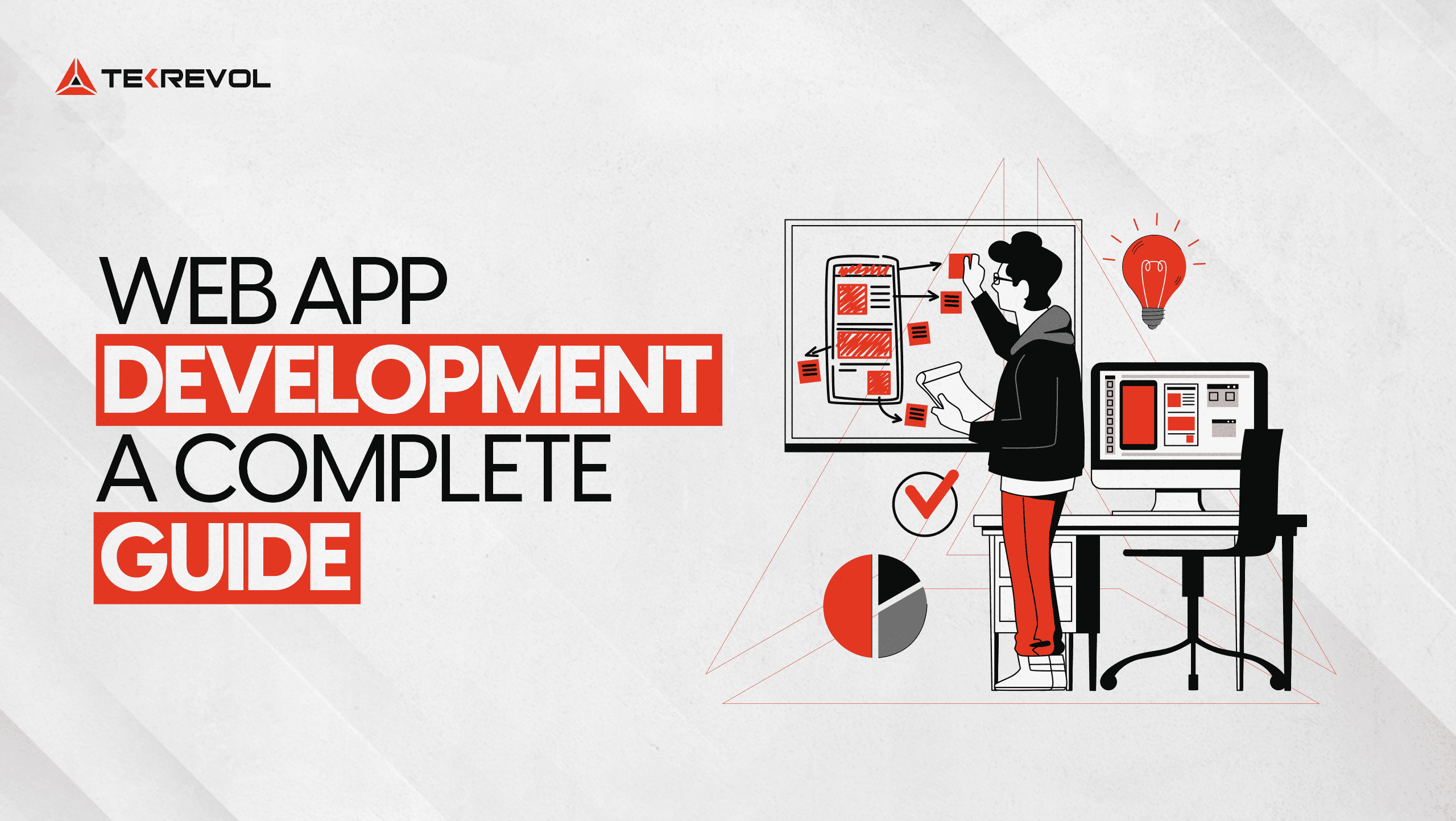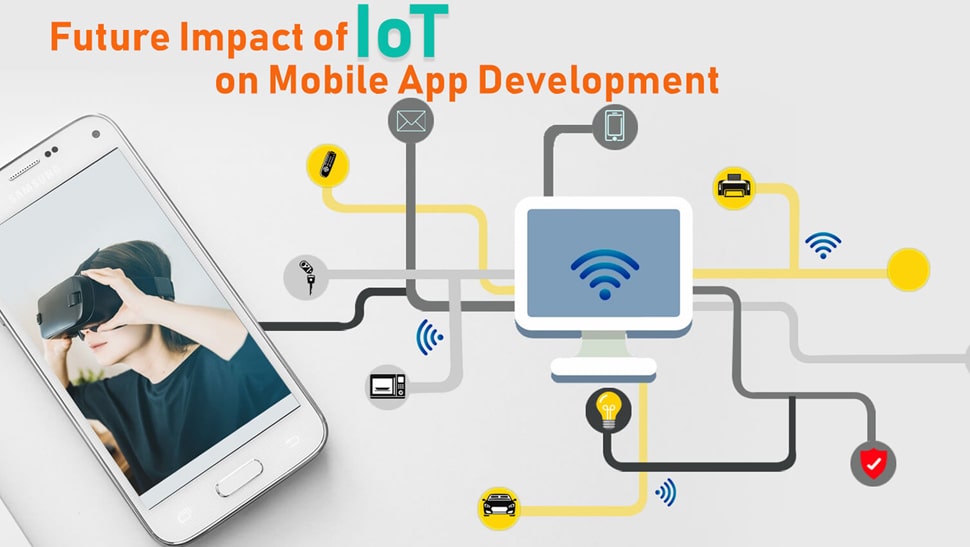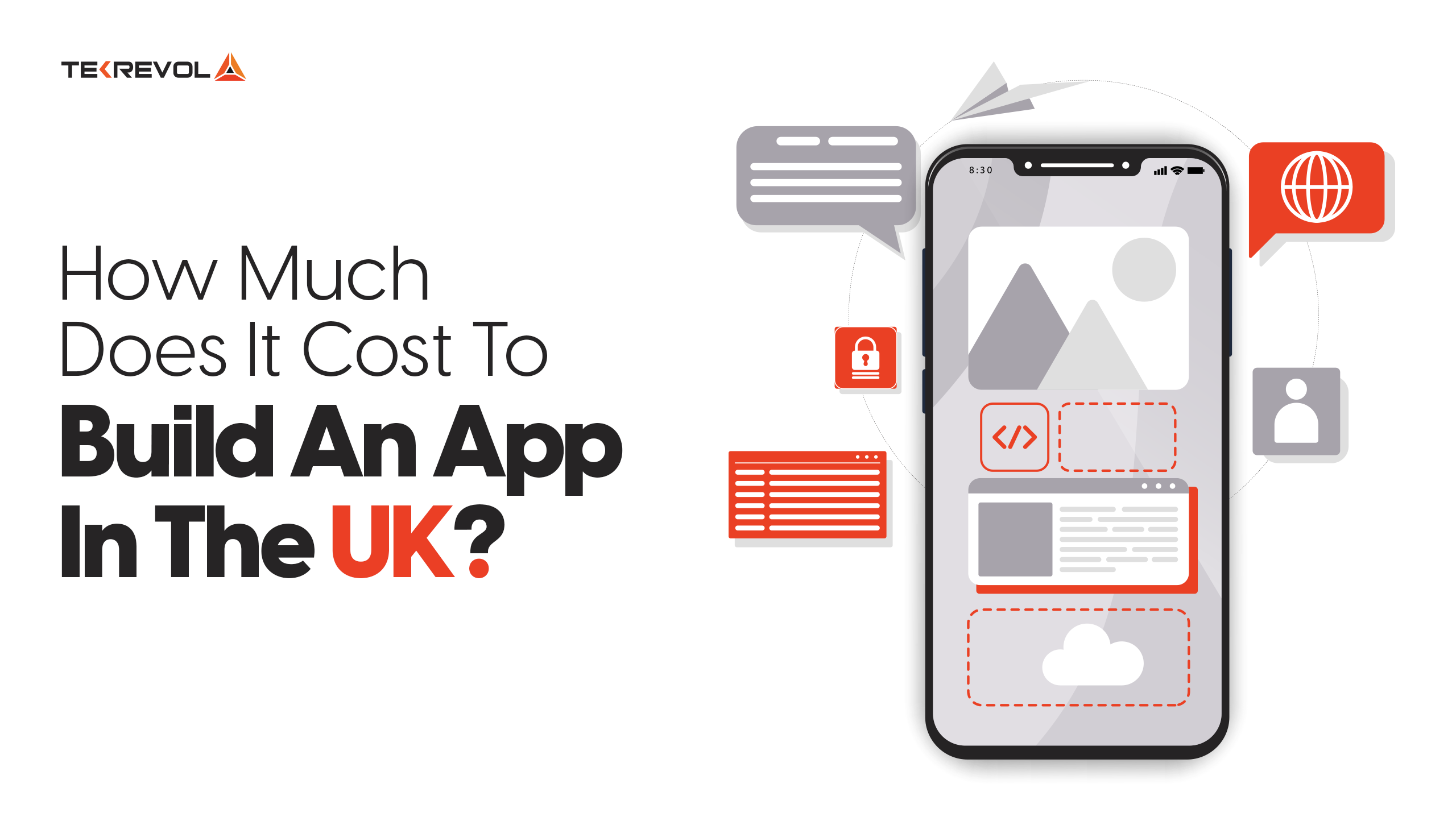Do you dream of transforming your ideas into a fully functional game-changing web app? But feeling lost in an ocean of technicalities?
But our message to our entrepreneur extraordinaire will remain the same, which is ‘you are not alone’.
We appreciate your attention, as this guide is meant to be your go-to resource for helping you find your way and exploring the latest developments in web app development.
Our pioneering web application development company will take you through different aspects of web app development, and discuss its practical benefits along the way.
So, buckle up, because we are about to blast off into a world of:
- Crystal-clear descriptions:Forget decrypting tech-speak. We will break down web app development into bite-sized fragments, so you can comprehend exactly what it takes to bring your dream to reality.
- Real-world instances:Imagine the next mega eCommerce platform or the ultimate social media game-changer. We will discover exciting web apps that are already stunning the digital dominion.
- Future-proof visions:The world of web apps is continuously developing. We will uncover the pioneering trends that will form the industry tomorrow.
Web applications provide a ton of benefits, but what exactly is the reason for their success? Users crave web apps that are:
- Extremely customizable:Think “select your adventure” for the web. Envision an app that effortlessly adapts to each user’s requirements and choices.
- Crammed with features:Forget boring, one-trick colts. We are talking about web apps that can do everything, from modernizing workflows to nurturing partnerships.
- Device agnostic:No more hunting on the app store! These web wonders work effortlessly across any device with a web browser, providing definitive reach.
The outcome? A powerful tool that provides the modified punch of a native mobile app with the suppleness and reach of a web-based platform.
It is no wonder industries like eCommerce, banking, and finance are jumping on the web app bandwagon!
It is estimated according to research by Statista that Revenue in the Application Development Software market is expected to reach US $179.90 billion in 2024.
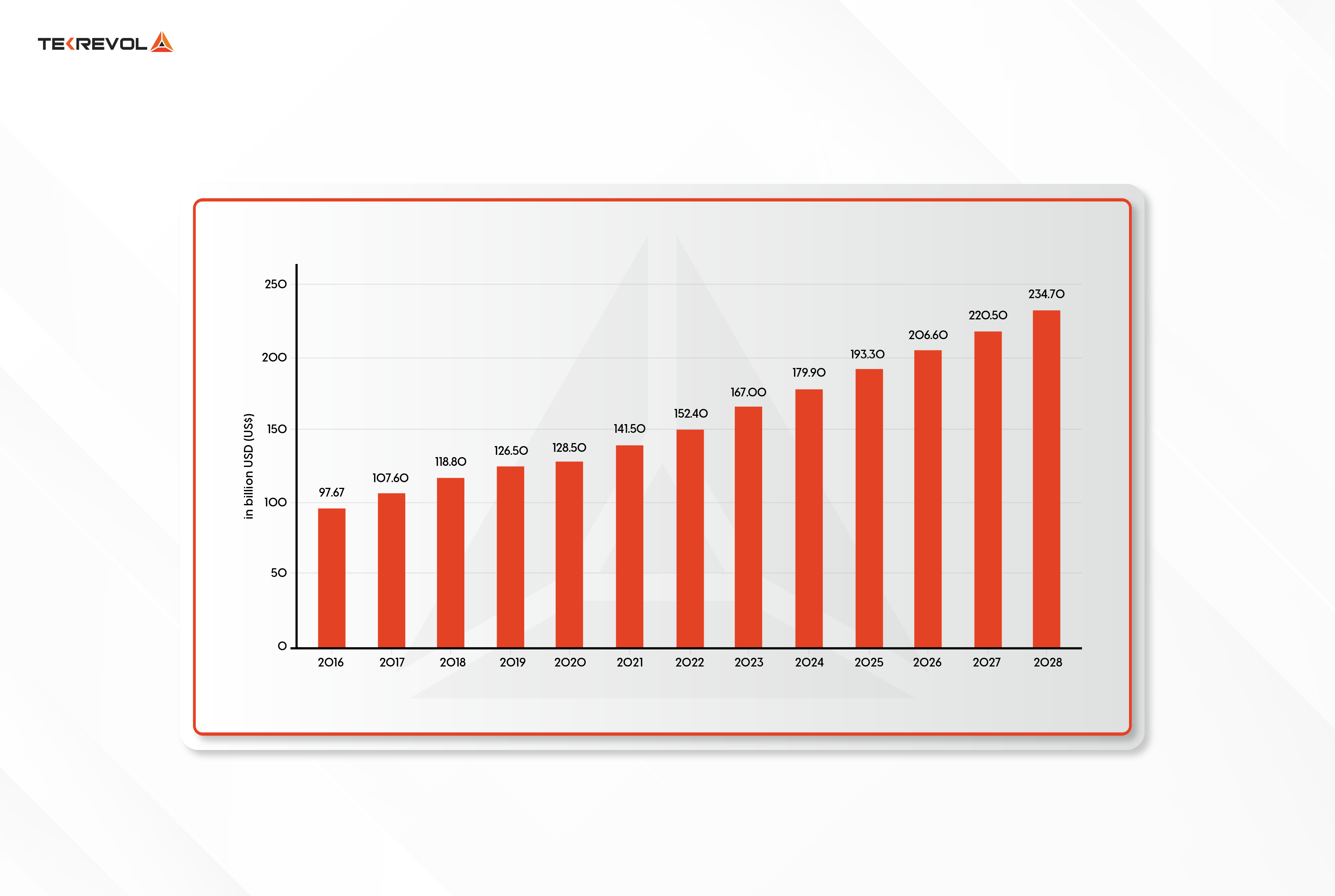
Ready to learn about the true potential of web app development for your innovative idea? Let’s dive in!
What is Web App Development?
Web application development is the course of creating software apps by a mobile app development company that works on a web server and can be reached using a web browser on any device that has an internet connection.
Unlike traditional desktop apps that are downloaded and installed, different types of web applications can be reached online, offering ease, flexibility, and convenience.
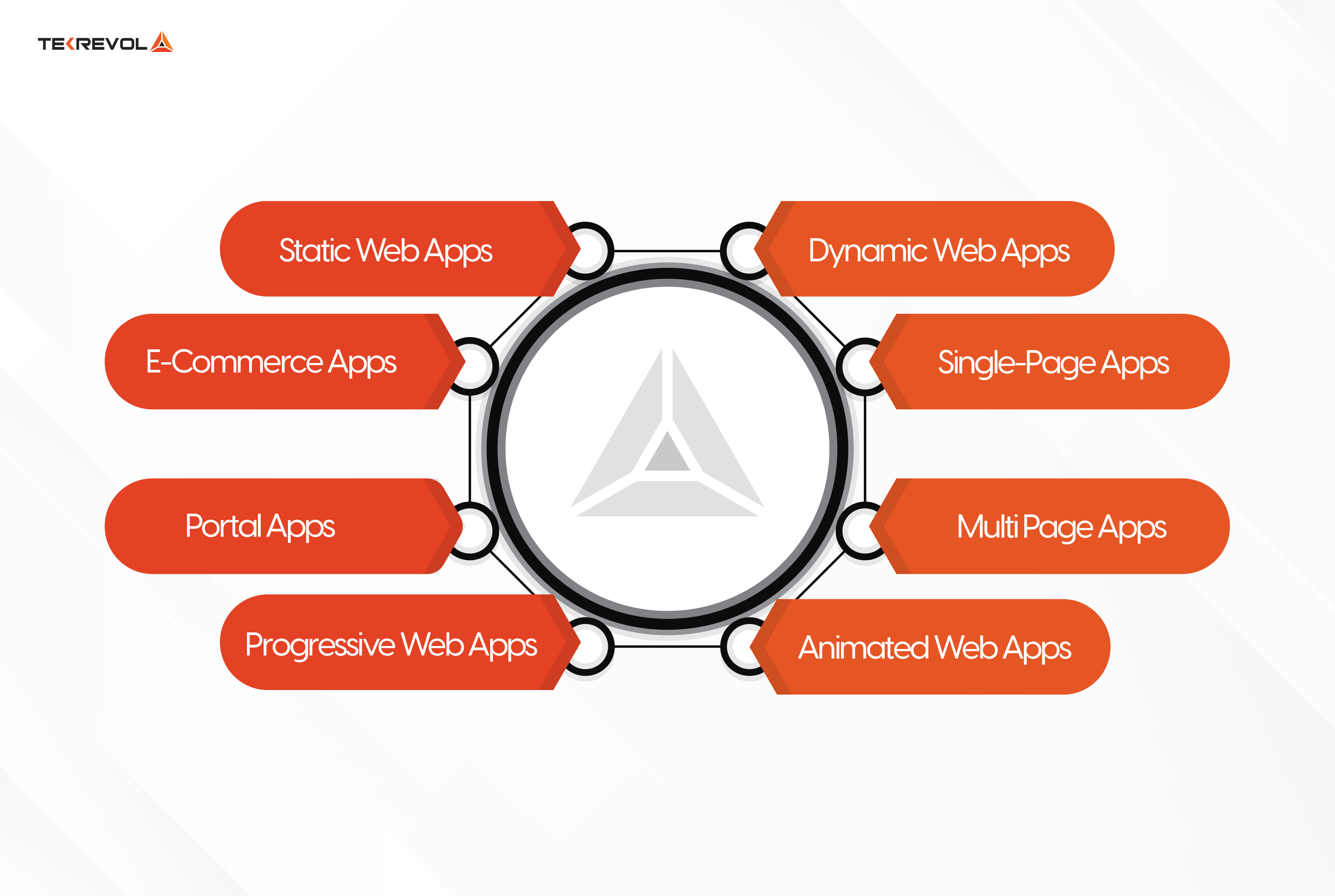
Main Features of Web Apps as Compared to Desktop Apps
Accessibility
You can access web apps from any device with a web browser, eliminating the need for the installation of software on individual computers.
Platform Independence
Web apps work flawlessly across multiple operating systems like Windows, macOS, Linux, and etcetera.
Scalability
Web apps can be conveniently scaled to house an ever-expanding user base without needing substantial changes on the user’s end.
Updates
Updates to web apps are installed on the server, and automatically available to all users without manual updates on individual devices.
Teamwork
Web apps frequently enable instantaneous partnership among users, making them perfect for teamwork and common ventures.
Difference between Web App and Website
While both web apps and websites are accessed with the help of a web browser, they have diverse functionalities:
Websites: Chiefly assist in offering information and content. They are stationary pages or provide limited interactivity, like filling out contact forms. Think of a company’s online brochure as an example.
Web Apps: Provide a dynamic and interactive user experience, permitting users to perform certain tasks or employ data. Instances include online banking, social media platforms, and project management tools.
Difference between Web App and Mobile App
Availability: Web apps are available through any web browser, while mobile apps require downloading and installation on a certain mobile device such as a smartphone or tablet, with a compatible operating system.
Offline Functionality: Mobile apps can occasionally be used without an internet connection, while web apps characteristically require an internet connection.
User Interface: Mobile apps are developed for touchscreens and smaller screens, while web apps can be adjusted to different screen sizes but may not offer an improved experience for touch-based interaction.
Take a look at this comprehensive comparison between web app, website, and mobile app in the table below:
Web App vs. Website vs. Mobile App
| Feature | Web App | Website | Mobile App |
|---|---|---|---|
| Purpose | Performs specific tasks and functions | Provides information and content | Performs tasks and functions specifically designed for mobile devices |
| Interactivity | Highly interactive, allows users to perform actions | May be interactive (forms, comments), but primarily for displaying information | Highly interactive, optimized for touch input |
| Content | Dynamic content that updates based on user input or server-side changes | Static content may have some dynamic elements | Designed for a smaller screen and optimized for quick access |
| Development | Often requires login or user accounts | May or may not require a login | Requires login for most features |
| Accessibility | Uses web technologies (HTML, CSS, JavaScript) | Uses web technologies (HTML, CSS, JavaScript) | Uses platform-specific programming languages (Swift for iOS, Java/Kotlin for Android) |
| Offline functionality | Accessible through any web browser on any device | Accessible through any web browser on any device | Requires a specific mobile device and operating system (iOS or Android) |
| Offline functionality | Limited offline functionality (may require specific development) | No offline functionality | May have some offline functionality (dependent on app design) |
| App Store | Not required | Not required | Required to be submitted to the App Store (iOS) or Google Play Store (Android) |
By understanding these major differences, you can learn if a web application is the perfect solution for your requirements.
- With a Responsive and Dynamic Web App, you can witness 60% increase In Customer Engagement.
- Let’s make it happen by getting in touch with our qualified professionals.
Benefits of Web Application Development
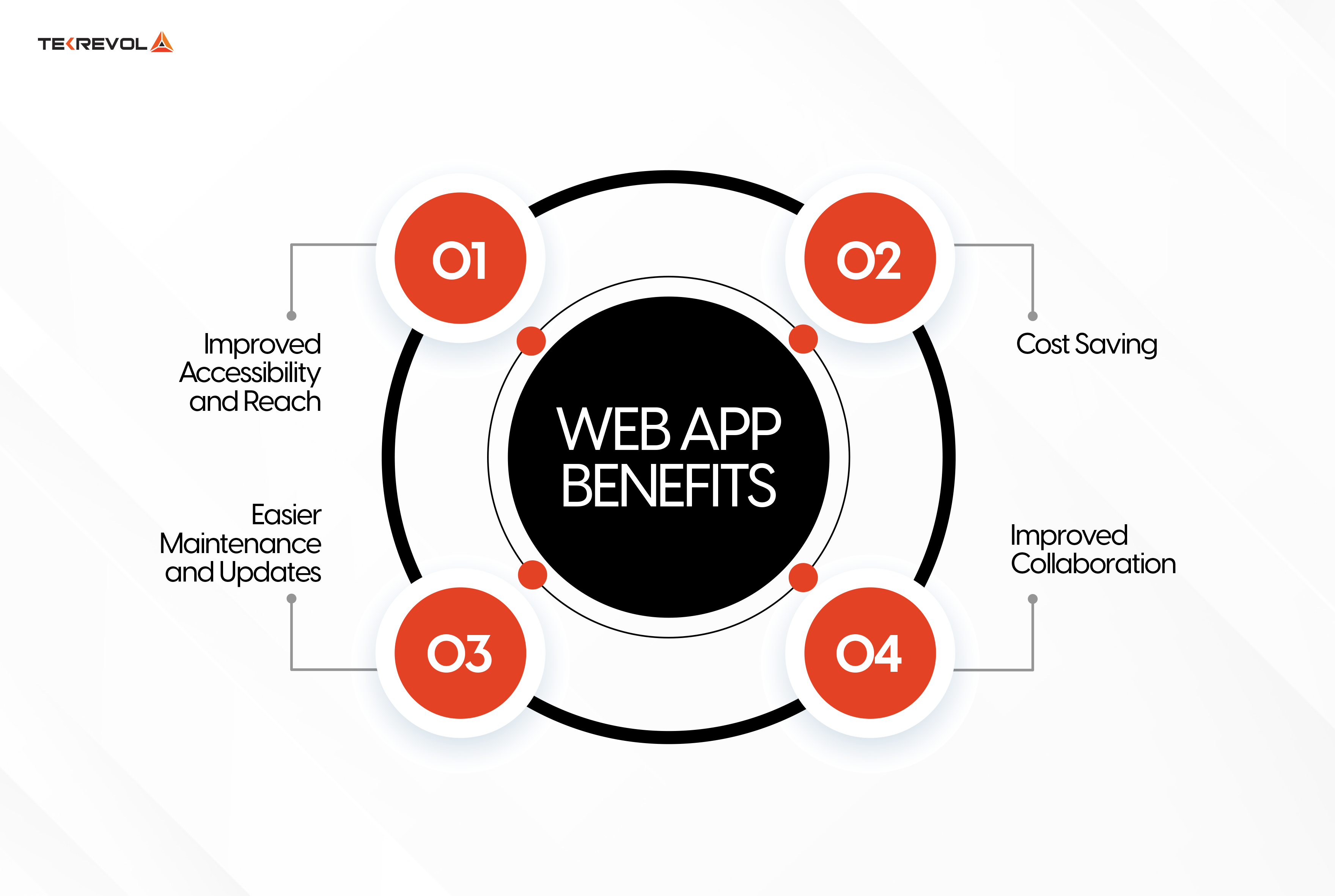
Following is a description of how web app development can provide you with a thoughtful competitive edge:
1. Improved Accessibility and Reach
With its improved accessibility and reach, your audience can reach you 24/7 without any geographical restrictions.
Anyone with an internet connection can access your app, growing your reach exponentially.
Think of it as having a virtual shopfront on every corner of the street around the world, open for business all the time.
2. Cost Saving
Developing a native app for every platform (iOS, Android, etc.) can promptly drain your resources.
Web apps are your knights in shining armor! Develop once, deploy everywhere.
You remove the requirement for multiple codebases and modernize your development procedure, saving you substantial time and budget.
Besides, updates roll out routinely on the server, meaning no extra installation annoyances for your users – one more cost-saving!
3. Easier Maintenance and Updates
Remember the days of forcing updates on your users, only to be met with groans and hindrances?
With web apps, those days are long over. Updates occur impeccably on the server side, guaranteeing everyone always has the newest and supreme features.
Additionally, bug fixes and security patches are installed promptly, keeping your app working easily and firmly without any user intervention.
4. Improved Collaboration
Effortless collaboration is key in this fast-paced business world. Web apps take away geographical confines and time zone nuisances, promoting real-time collaboration across locations.
Picture your team collectively working on projects at the same time, accessing and sharing data without any hiccups – a recipe for enhanced output and modernization.
Developing a web application can be your top-secret weapon for developing a stronger, more concerted team culture.
- Unlock your Growth Potential
- Manage more than 3X increase in the user load with Web Application.
From Vision to Reality with a Comprehensive Web App Development Process
Developing a web application is like building a skyscraper. You will not start hurling up steel beams without an outline, right?
Web app development process trails a comparable logic, guaranteeing a robust and functional final product.
Following is a roadmap to help you through each critical phase:
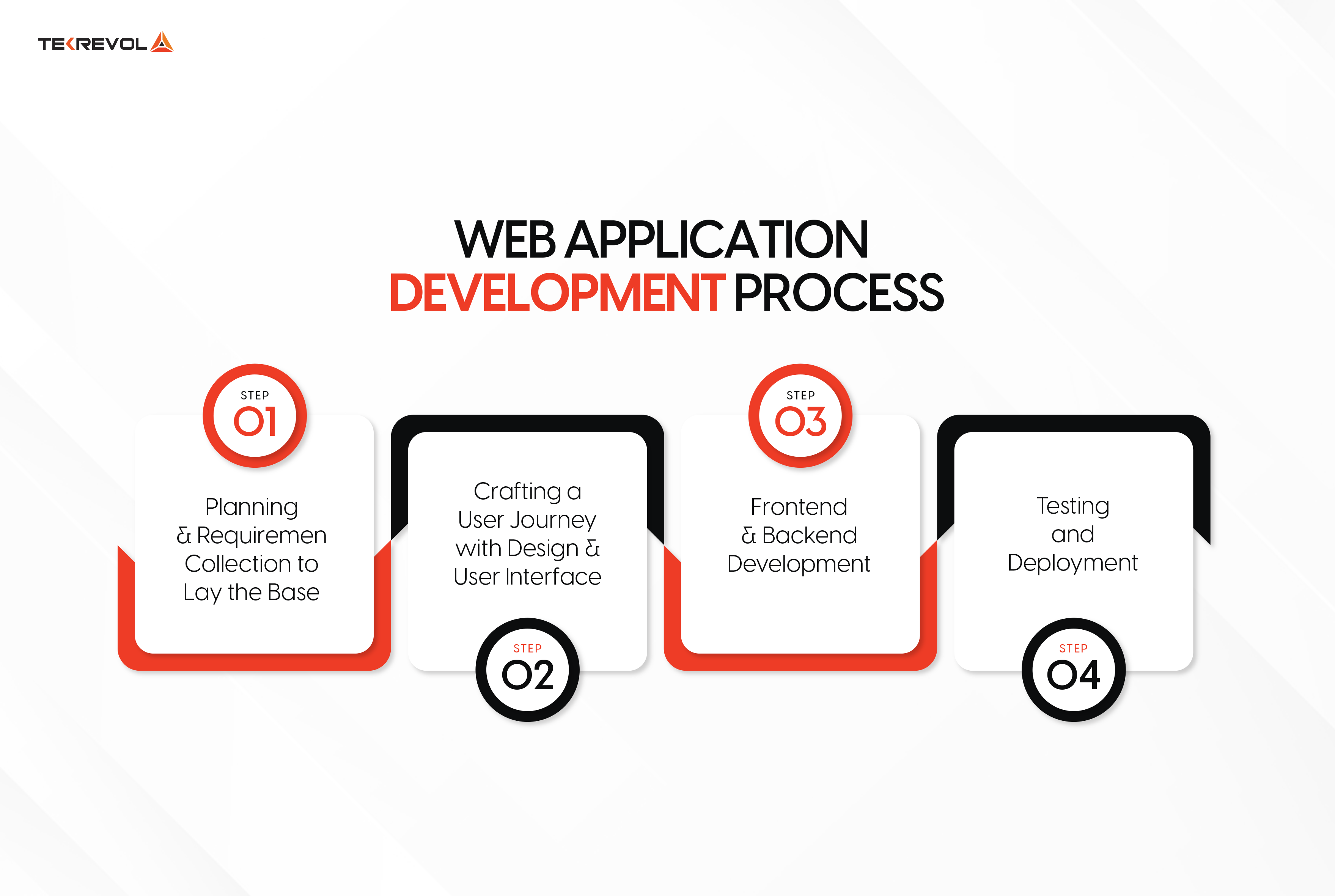
1. Planning and Requirement Collection to Lay the Base
Defining your target audience and their requirements: Who are you developing this app for? Understanding their requirements, wants, and hindrances is crucial. Envision them as the architects – they will tell you what features will make their survival easier.
Features and functionalities: What problems are you addressing with your application? Don’t get bogged down in whistles and bells – prioritize essential functionalities that provide real value to your users.
2. Crafting a User Journey with Design and User Interface
User experience considerations: Think of user experience as the art of making your app fun to use. A convenient and intuitive experience keeps users involved and coming back for more.
Design tools and best practices: From wireframing to prototyping, different web app development tools and frames help envision your app’s design and user flow. Take them as your paintbrushes and palettes, bringing your dream to reality.
3. Frontend and Backend Development
Programming languages and frameworks: Magic happens at this phase! Frontend developers make use of languages like HTML, CSS, and JavaScript frameworks such as React or Angular, to develop the user interface you see and interact with. In the meantime, backend developers such as Python, Java, and PHP create the invisible engine that fuels your app, managing data storage, logic, and server-side functions.
APIs and data integration: APIs work as messengers, enabling your app to connect with other services and databases. Think of them as bridges, joining your app to the data it requires to function without any hassle.
4. Testing and Deployment
Quality assurance methods: Just like a professional and experienced architect would not let a structure with cracks open for work, rigorous testing guarantees your app is bug-free and works spotlessly. This is where the quality assurance testers come in, precisely probing every corner of your app.
Launching and hosting options: It’s showtime! Once the testing phase is done, you will be choosing a hosting platform to make your app available to the world. Think of it as finding the ideal location for your virtual shopfront.
Popular Web App Development Technologies – Building Blocks for Success
The ecosystem of web development is overflowing with influential tools. Following is a breakdown of the key technologies that make web apps work:
Frontend Technologies
HTML, CSS: The basis of any web page, these languages describe the structure and visual design of your app. Imagine them as the skeleton and muscles of your virtual body.
JavaScript Frameworks like React or Angular: These frameworks optimize superpowers to your app’s interactivity and working. Think of them as the brain and nervous system, enabling your app to respond to user actions and data variations.
Backend Technologies
Programming Languages like Python, Java, and PHP: These languages are the mainstays of the backend, managing data processing, server-side logic, and connections with databases. Visualize them as the heart and lungs, keeping your app functioning with any problem.
Database Technologies
SQL Databases like MySQL: These organized databases are perfect for storing and establishing large datasets in a table format. Think of them as filing cabinets, skillfully organizing your app’s info.
NoSQL Databases: These flexible databases are ideal for storing shapeless data like user profiles or social media posts. Think of them as expandable storage units, adjustable to your app’s developing requirements.
Further Considerations for Web App Development
Your web app is like a gleaming new car – you would not leave it open in a dark street, would you?
Security and scalability are the garage and alarm systems of web development, guaranteeing your app stays safe, dependable, and ready to manage anything.
1. Security and Scalability
Imagine your app as a locker filled with treasured user data. Strong security measures like encryption and control access are critical to keep hackers at a considerable distance. Think of them as advanced security cameras and unassailable doors, shielding your app from intruders.
As your user base grows, your app needs to be able to handle the increased traffic without crashing. Scalability is all about developing a base that can grow. Think of it as creating application web on a sturdy, expandable frame, permitting it to grow alongside your success.
2. Maintenance and Updates – Keeping Your App Running Smoothly
Just like a car requires steady maintenance, your web app needs constant care. Updates fix bugs, optimize performance, and add novel features to keep your user’s content. Think of it as taking your app in for systematic tune-ups and upgrades, guaranteeing it stays dependable and viable in the developing digital world.
Conclusion – Beginning of Your Web App Journey
Building a web app can be a thrilling journey. By completely understanding the process, the complex technologies involved, and the extra considerations, you are well on your way to altering your dream into reality.
Key Takeaways:
- Web app development fuels you to craft powerful tools that can reach a worldwide audience.
- A well-defined development process warrants a smooth journey from idea to launch.
- Utilizing the right technologies is key to developing a secure, scalable, and user-friendly app.
The Future of Web Application Development: A Look into Tomorrow
The future of web application development is overflowing with exciting opportunities. Imagine apps that effortlessly blend with artificial intelligence for smarter and better user experiences.
With voice-activated interfaces and modified recommendations that anticipate your requirements. The possibilities are boundless!
By staying well-versed in these tech advancements, you can guarantee your web app stays ahead of the competition and continues to provide extraordinary value to your users.
So, are you ready to start your web app development journey? The future is waiting!

 3593 Views
3593 Views July 16, 2024
July 16, 2024